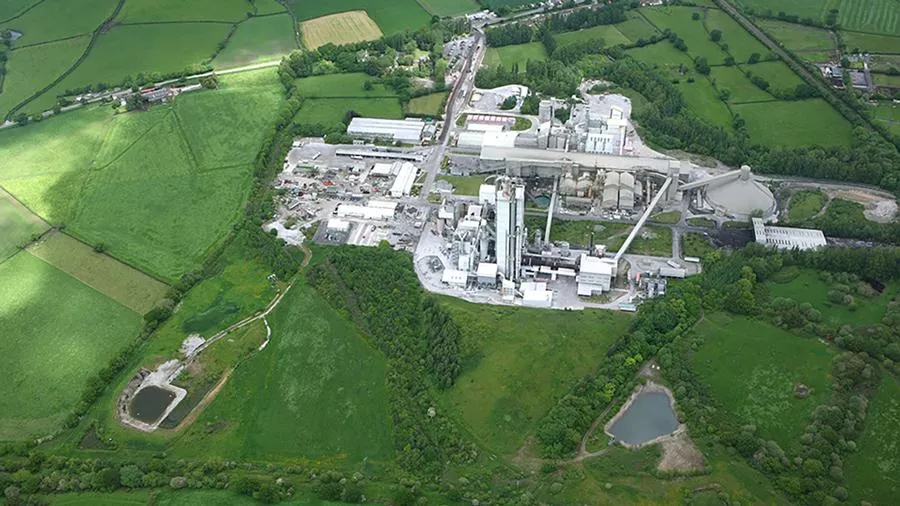Construction News
In association with www.TradeArabia.com
Worley wins Feed contract for UK carbon capture cement facility
25-02-2024
Worley, a global professional services company of energy, chemicals and resources experts, in partnership with Mitsubishi Heavy Industries (MHI) Group, one of the world's leading industrial groups, has been selected to undertake a front end engineering and design (FEED) project by Heidelberg Materials UK, a leading integrated manufacturer of building materials and solutions.
The project will support the development of a ground breaking carbon capture facility at Heidelberg Materials’ cement works at Padeswood, North Wales, marking the first of its kind in the UK.
As per the deal, Mitsubishi Heavy Industries (MHI)'s technology is being deployed by Heidelberg Materials UK, for the Feed project, to further study the specifications of a CO2 capture plant at Padeswood Cement Works in Flintshire, UK.
The Feed contract was secured by Worley and MHI through a competitive tender process. The partners have worked together collaboratively on several carbon capture projects and previously completed a pre-Feed project for Padeswood, said a statement from MHI.
The project stage will support Heidelberg Materials with securing UK government approval, achieving a positive final investment decision and enabling the EPC stage to commence in the first quarter of 2025.
On the contract win, Marino Barbi, Worley’s Senior Vice President UK, said: "We are delighted to have been selected by Heidelberg Materials UK for their Padeswood CCS Feed project. Securing this contract is not only testament of the strength of our relationships with Heidelberg Materials UK and MHI but also reflects our execution of the pre-Feed and our team’s expertise in delivering Feed services for first of a kind CCUS facilities.
Padeswood is a landmark project in the UK’s decarbonisation strategy and aligns with our commitment to contributing to a more sustainable world."
This contract has been awarded in accordance with the progress made by the Padeswood CCS (carbon capture and storage) project planned for the site. MHI was selected after working on the initial competitive Pre-Feed (Note) project study awarded in 2022.
The project is part of the HyNet CCUS (carbon capture, utilization and storage) cluster in the North West of the UK, which plans to capture up to 800,000 tons of CO2 annually from flue gas produced during the cement manufacturing process and store it in a depleted gas field off Liverpool Bay.
The CO2 capture plant could start operation in 2028. As well as the direct benefit of decarbonizing the industrial process, enabling the production of carbon neutral cement is key to supporting a low carbon supply chain to the construction industry, said the statement.
This project is a partnership between MHI and Worley, a global professional services company of energy, chemicals and resources experts, and will implement the basic design of the CO2 capture plant using the "Advanced KM CDR Process™" proprietary CO2 capture technology developed jointly with The Kansai Electric Power Company.
Kenji Terasawa, CEO and Head of Engineering Solutions at MHI, said the cement industry was `hard to abate', because CO2 emissions cannot be avoided in the production process.
"Heidelberg Materials UK has committed to reaching net zero carbon by 2050 and will be deploying our proprietary carbon capture technology, the Advanced KM CDR Process to tackle this challenge - leading the way in the UK's cement industry. We are proud to contribute to the effort on this commitment through the Padeswood CCS project," he stated.
Heidelberg Materials CEO Simon Willis said: "This is a decisive next step in our plans to install carbon capture technology at our Padeswood cement works. Once operational, it will provide net zero building materials for major projects across the country, enabling us to help decarbonise the construction industry and meet our ambition to become a net zero business."
The UK Government has set a target to achieve net zero carbon emissions by 2050. In line with this initiative, the requisite infrastructure, including formation of CCUS clusters, is being developed to carry out all related processes - from CO2 capture to transportation and storage - at each of the country's targeted industrial zones.
The HyNet CCUS cluster, which includes this project, was selected by the then UK Department for Business, Energy and Industrial Strategy (BEIS) as a storage site in October 2021. This is still being supported by the subsequent new department, the Department for Energy Security and Net Zero.-TradeArabia News Service
More Stories
- Enlarged PPIE to return to Dubai next month
- Axiom launches Milestone Residences in JVT
- AGMC to launch $136m state-of-the-art facility in Dubai South
- UAE to add 6.34GW 'green' power capacity by 2030
- ADIO and AD Mobility unveil UAE’s first operational vertiport
- Select launches 'world's tallest residential tower' in Dubai
Tags
Green Buildings
Air-Conditioning & Refrigeration
Kuwait
Site Management
Loaders
Just Out
Focus: Evolving Jobs Market
TechTalk
Legally Bound
Regional News
Saudi Focus
UAE Focus
Events
Tenders
Manufacturers & Procurement


